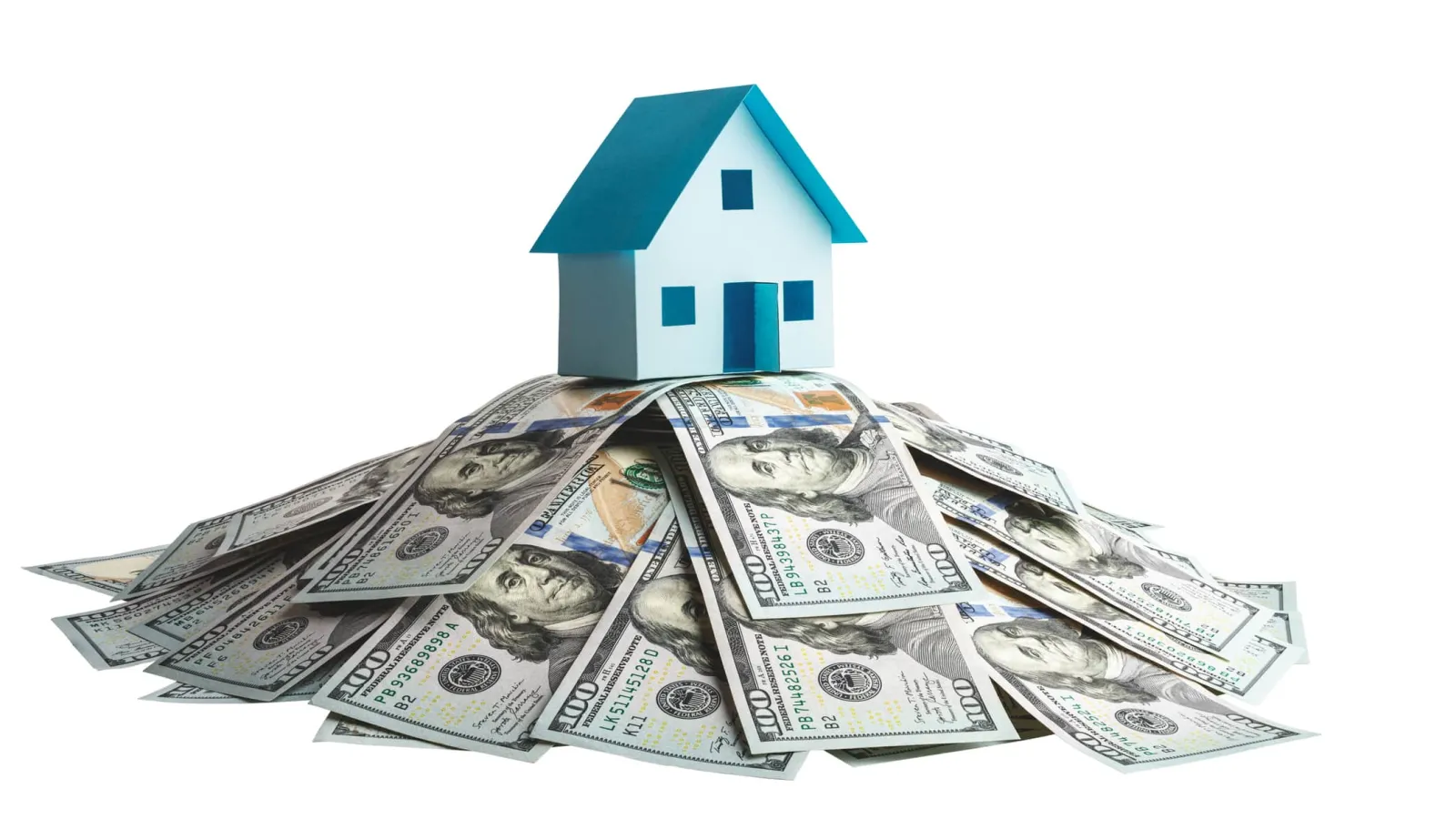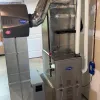If you're considering replacing your furnace, cost is one of the biggest considerations.
How much does a new furnace cost? Why do some options cost more than others? Why are some contractors' quotes so different?
In this article, we'll answer all of these questions with an eye toward helping you determine how much your new furnace is likely to cost. We'll also consider all of the factors that contribute to the final cost of a replacement furnace for your home.
Factors that impact furnace cost
Before throwing out hard numbers-and don't worry because we will be looking at actual dollar amounts-let's take a look at the different factors that affect the cost of a new furnace.
Size, application, and safety requirements
Different homes need different size furnaces.
And larger furnaces tend to cost more than smaller ones.
That doesn't mean you should pick a smaller furnace to save on costs. It just means that you might have to pay more for your furnace than your neighbor who lives in a smaller house. Or vice versa.
Ultimately, getting the right size furnace from your home saves you the most money. A properly sized furnace provides the best efficiency and suffers the least in terms of wear and tear.
To select a furnace that's the right size for your home, your contractor needs to perform a Manual J load calculation. This step involves a series of measurements and number crunching that results in a precise calculation of the perfect furnace and air conditioning size for any given property.
Most contractors don't do this. But they should. We always do!
It's also important to consider what you're trying to heat. If you're getting a furnace for part of your home or for a detached building, that's going to have a different cost than getting one for your whole home. The ductwork situation also matters. Can we reuse your existing ductwork? Or will you need new ducts and a new duct design to enjoy the best performance from your furnace?
Finally, there's safety. Many furnaces in older homes were vented into chimneys, a situation that no longer meets building codes and poses a risk to the occupants of the home.
If your installer has to vent the furnace some other way, that's going to add to the installation cost.
Efficiency
Furnaces are available in two efficiency categories: standard efficiency and high efficiency.
Standard furnaces are around 80% efficient and use atmospheric combustion. This means they take in air from the surrounding environment to ensure proper combustion inside the unit. As such, they need to be installed in a vented attic or crawlspace.
High efficiency furnaces are at least 90% efficient with many exceeding 95% AFUE. These use a closed combustion process in which combustion air is brought in from the outdoors. They can be installed in airtight environments, such as an encapsulated crawlspace, sealed attic, or basement.
Generally speaking, the higher the efficiency of the furnace, the higher the upfront cost.
Furnace type
You can choose a furnace from three different categories: single-stage, two-stage, and modulating (variable speed).
Single-stage furnaces are standard furnaces. They're "on/off" units, meaning they turn on when the thermostat calls for heat and turn off when the temperature on the thermostat has been reached. It's the kind of furnace you probably grew up with. These furnaces are usually 80% efficient.
Two-stage furnaces have two stages of heat: a high stage and a low stage. The high stage is basically the same efficiency as with a single-stage unit. But these furnaces will run for longer cycles at the lower stage when your home has only modest heating needs. As it turns out, most of these units will spend more time running at the lower stage. This lowers your gas bill, but two-stage units cost more to purchase.
Modulating furnaces offer the best experience in terms of comfort and efficiency. They ramp up and down to meet your home's exact heating needs. These furnaces require variable speed blowers and are the most expensive of the three types. That said, many homeowners' winter heating bills plummet after installing one!
Cost to replace a furnace alone
Ok, now let's look at some hard numbers!
At the time of publication, the cost to replace a furnace alone (this means you're keeping your existing air conditioner) ranges from $4,500 to $14,000.
We realize that's a huge spread! Keep in mind that there's a big difference between purchasing a standard furnace for a small home and a modulating furnace for a large home. Add in ductwork and venting modifications for the large home, and you can see how one furnace installation costs thousands of dollars more than another one.
Wondering about cost ranges for standard vs high efficiency furnaces? Here you go!
- Standard furnaces: $4,500 to $7,500
- High efficiency furnaces: $6,000 to $14,000
So, should you replace your furnace and leave your AC alone?
Usually not. In most cases, it makes more sense to replace the furnace and the AC at the same time. Here's why:
- The furnace and AC are usually the same age and will have similar replacement schedules.
- The furnace fan needs to be compatible with the air conditioner. Many new furnace blowers won't work with older AC units.
- You'll save on labor costs by doing both at the same time.
This doesn't mean everyone should replace both units at the same time. But we find that for most homeowners, in most cases, it's more economical to replace the entire HVAC system instead of just the furnace by itself.
Cost for a new furnace and AC
This is what most homeowners will opt for. Replacing your furnace and AC at the same time usually makes the most sense.
At the time of publication, the cost to replace a complete HVAC system ranges from $10,000 to $15,000 for a standard system and $15,000 to $25,000 for a variable speed system.
Again, the variance in costs is attributable to a whole host of factors, including system size, application, furnace type, efficiency ratings, and so on.
Be sure to include energy savings into your cost calculations. Variable speed systems cost more at the outset, but can save you thousands of dollars over time since they use less energy.
What to expect from the contractor installing your furnace
While contractors deserve to charge a fair price for their work, it's important to know whether what they're doing is worth what they charge! Here are some things to insist on when hiring a contractor to install your new furnace:
- Manual J load calculation to ensure your furnace is the right size
- Complete consultation to understand your preferences for your heating system
- Options for furnace types and efficiencies
- Insistence on proper ductwork design and installation, so you get the maximum efficiency and comfort
- Proper furnace commissioning procedures so you know you're getting a high quality installation
- Completion of a post-installation audit to ensure your furnace heats your home properly
The load calculation is particularly important because it can impact both the effectiveness of your furnace and its lifespan.
An oversized furnace might heat your home unevenly, resulting in hot and cold spots. It will also use more energy (think higher bills!) and might fail sooner than a properly sized furnace due to increased wear and tear.
Conclusion: Many factors influence how much a new furnace costs
Depending on your needs, budget, and the unique aspects of your home's HVAC situation, the cost of a new furnace might be lower or higher than you were expecting.
If you live in Metro Atlanta and are considering a new furnace for your home, PV Heating, Cooling & Plumbing can help! We'll listen to your concerns, help you select the best furnace, and provide the highest quality installation you can find in this region!
As approved contractors for Georgia's energy rebate programs, we can also help you minimize the costs of a new heating system while maximizing long-term comfort and efficiency!
To learn more about replacing your furnace or to request a consultation, call us today at (404) 798-9672 or schedule an appointment online!




